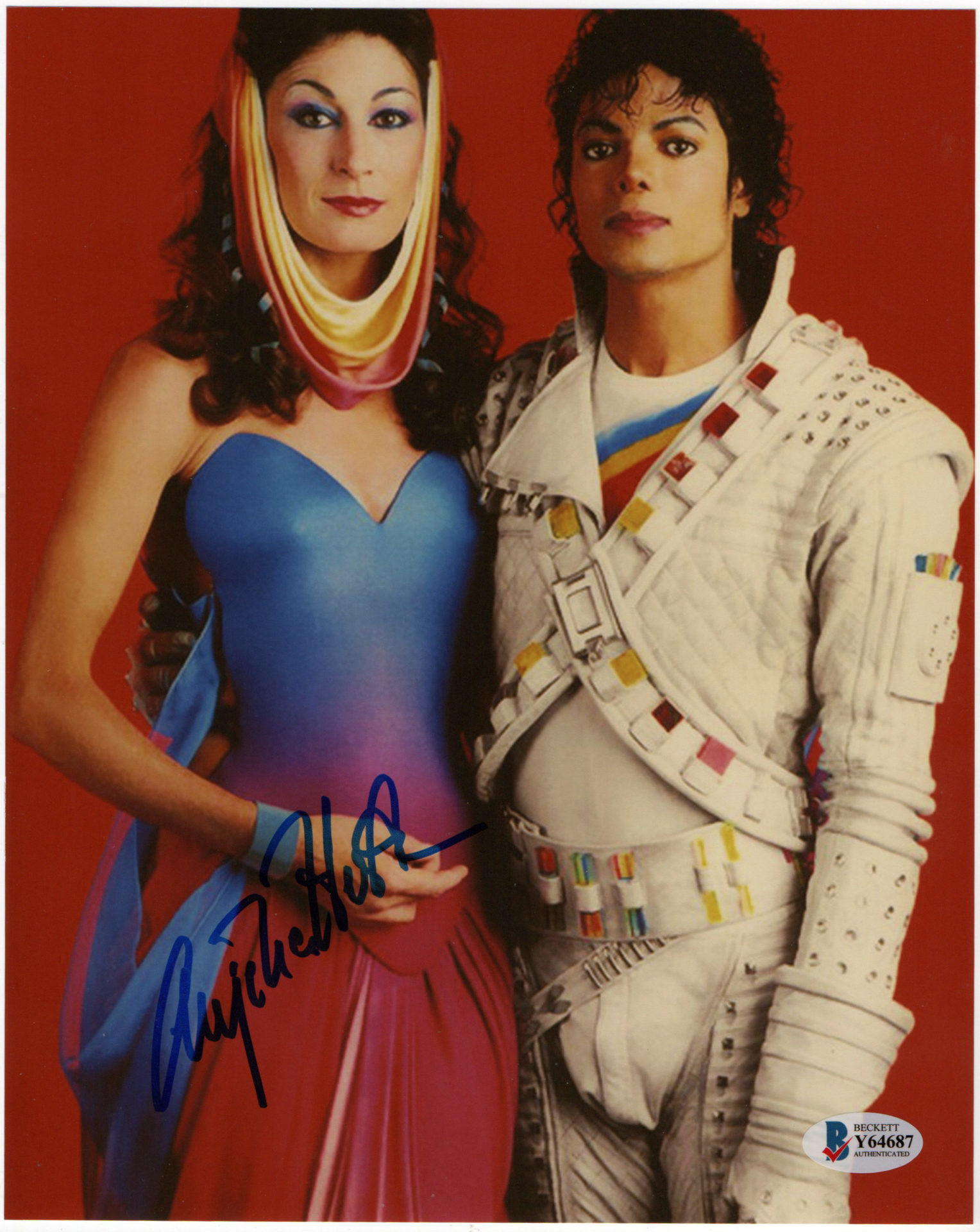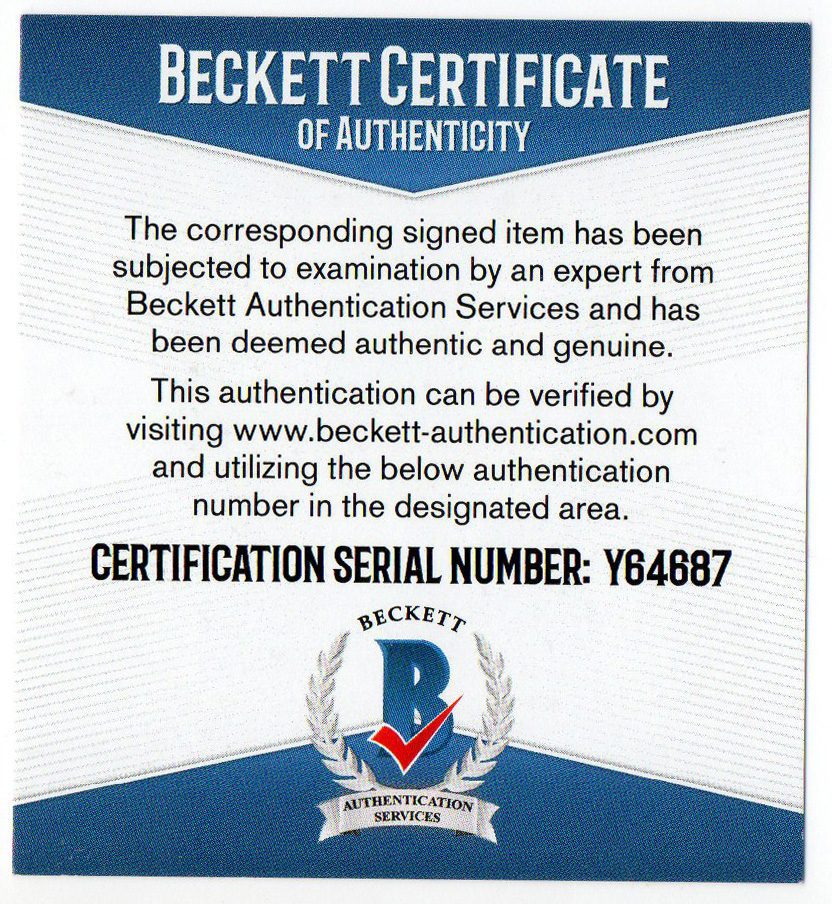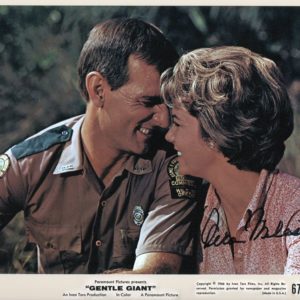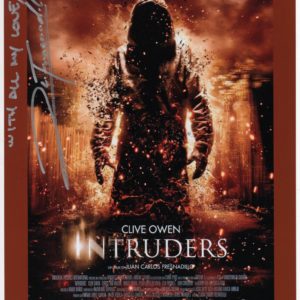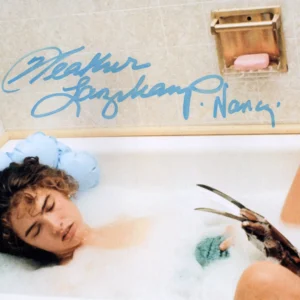Description
Early life
Huston was born at 6:29 P.M. on July 8, 1951, at the Cedars of Lebanon Hospital, in Los Angeles, to director and actor John Huston and prima ballerina and model Enrica Soma. According to Huston, “the news of my arrival was cabled promptly to the post office in the township of Butiaba, in Western Uganda days later, a barefoot runner bearing a telegram finally arrived at Murchison Falls”, where her father was filming The African Queen (1951). Huston’s paternal grandfather was Canadian-born actor Walter Huston. Huston has Scottish, Scotch-Irish, English and Welsh ancestry from her father, and Italian from her mother. When she was 2 years old, her family relocated to Ireland, where she spent much of her childhood and which she still considers home. Her parents rented what Huston called the “Courtown House” —a tall stone Victorian manor in County Kildare— for three years, before John Huston bought St. Clerans, a 110-acre estate in County Galway, in 1954. She attended school at Kylemore Abbey, and later attended Holland Park School after relocating to England. Huston has a complex family because of her parents’ multiple marriages and extramarital affairs. She has an older brother, Tony, and an adopted older brother, Pablo. She has a younger maternal half-sister named Allegra, whom she called “Legs”; and a younger paternal half-brother, actor Danny Huston. She is the aunt of actor Jack Huston. She once described herself as a “lonely child”, explaining: “My brother Tony and I were never very close, neither as children nor as adults, but I was tightly bound to him. We were forced to be together because we were really quite alone. We were in the middle of the Irish countryside … and we didn’t see many other kids. We were tutored. Our father was mostly away”.
Career
Work as a model and transition to film (1968–1984)
Her father’s film A Walk with Love and Death (1969), where Huston played the 16-year-old French noblewoman Claudia opposite Assi Dayan, marked her screen debut. She had been in the running to play Juliet in director Franco Zeffirelli’s adaptation of Romeo and Juliet (1968), but Huston withdrew her from consideration when he decided to cast her as Claudia in A Walk With Love and Death. Huston felt that she was wrong for the role, and has commented on the experience that her father “miscast me first time out and I think he realized that. I was ready to act, but I wasn’t ready to act for him … I was difficult, I didn’t want to act with no makeup, although I’d have done it for Franco.” Father and daughter had a fractious relationship on set, with the young Anjelica having difficulty learning her lines and focusing, while her father grew more impatient and angry at directing her. Critics derided her performance. Huston and her mother were photographed by Arnaud De Rosnay —whom she met at age 16 in Switzerland— in October 1968 for Vogue. Shortly afterwards, her mother died in a car accident, and the young Huston relocated to New York City as she “sort of fled London because of the memories; I didn’t really know what to do with myself, and I wasn’t quite sure what my father’s intentions were for me —whether he was going to put me in a convent or launch me as an actress. Well, he’d already tried to do that, and we’d had a hard time on the making of that first film we did together”. Inspired by models Jean Shrimpton and Twiggy, Huston decided to pursue modelling, and through photographer Richard Avedon, a friend of her parents, she met Diana Vreeland who proposed to Huston her first American Vogue photoshoot, which took place in Ireland. She described it as “very innovative because they presaged the whole sort of Gypsy look”. Huston became a frequent subject of Bob Richardson, whom she lived with until 1973. She was signed to Ford Models and in the early 1970s, worked in Europe “for a couple of years”. She walked the runway for brands such as Zandra Rhodes, Yamamoto, Armani and Valentino. Along with Pat Cleveland, Pat Ast, Elsa Peretti, Karen Bjornson and Alva Chinn, she became one of fashion designer Halston’s favored troupe of models, nicknamed the Halstonettes. After breaking up with Richardson, Huston met actor Jack Nicholson and moved to California, to focus on acting. While she “didn’t do much there for three years”, she filmed a small role in The Last Tycoon (1976), based on F. Scott Fitzgerald’s novel of the same name. Bob Rafelson’s remake The Postman Always Rings Twice (1981), based on the novel by James M. Cain, featured Huston as the fling of a Depression-era drifter, played by Nicholson. She briefly appeared in the drama Frances (1982) and the mockumentary This Is Spinal Tap (1984) before obtaining a larger role in the science fiction film The Ice Pirates (1984).
Critical and popular acclaim (1985–1994)
Her father cast Huston as Maerose, the daughter of a New York Mafia clan head whose love is scorned by a hit man, in the film adaptation Prizzi’s Honor (1985), which also starred Nicholson. She was paid the SAG-AFTRA scale rate of US$14,000 for her role. When her agent called up the movie’s producer to request if she could be paid more, she was told “Go to hell. Be my guest — ask for more money. We don’t even want her in this movie.” Huston, who was not only John Huston’s daughter but also Jack Nicholson’s girlfriend at the time, wrote in her 2014 memoir Watch Me that she later overheard a production worker saying: “Her father is the director, her boyfriend’s the star, and she has no talent.” Nevertheless, Huston garnered positive notices for her performance. The New York Times described her part as a “wonderful character, far darker and more complex than is indicated by her self-deprecating wisecracks (I’m a family scandal. I gotta reputation to keep up). She’s a riveting presence and if Miss Huston, the daughter of the director, doesn’t get an Oscar nomination for this performance, I’ll be very surprised.” Indeed, she won the Academy Award for Best Supporting Actress, making her the third generation of her family to win an Oscar. Huston starred opposite Michael Jackson in the 17-minute $30 million 3D film Captain EO, written by George Lucas and directed by Francis Ford Coppola, which ran from 1986 at Disneyland and Epcot, and later at Tokyo Disneyland and Euro Disneyland. Coppola next cast her as the girlfriend of an army platoon sergeant in Gardens of Stone (1987), a movie that dealt with the effect of the Vietnam War on the United States homefront. She starred as the wife of an academic in her father’s The Dead (1987), which was his last film as director. According to Anjelica Huston, her father remained a filmmaking virtuoso despite his ill health: “He was so sick, but he could literally do it with his eyes closed. He knew when we were going to get a take way long before the camera rolled. I mean the timing was so precise that he could tell everything, exactly how it was going to go.” The pressures of filming and watching her father’s health deteriorate had an adverse effect on Anjelica Huston’s own health, developing Epstein-Barr syndrome during production. In 1988, Huston played the love interest of an engaging, multi-talented, middle-class Yale University graduate in Mr. North, which was more of a family project, directed by half-brother Danny Huston, and made a cameo appearance in the film adaptation A Handful of Dust. Despite her limited screen time, Vincent Canby of The New York Times praised her portrayal in the latter as the “single most stunning performance” but called the film “both too literal and devoid of real point.” Woody Allen cast Huston as a flight attendant having an affair with a respected family guy in the dramedy Crimes and Misdemeanors (1989), earning a BAFTA nomination for Best Supporting Actress. The drama Enemies, A Love Story (also 1989) featured Huston as the long-vanished wife of a Holocaust survivor. In a positive review for the film, Roger Ebert asserted: “Parts, especially the scenes with Huston, are heartwarming in a strange way, because they show one human being accepting the weaknesses of another”. For her role, she received an Academy Award nomination for Best Supporting Actress. In The Witches (1990), based on the 1983 book of the same name by Roald Dahl, Huston starred as the Grand High Witch, the all-powerful leader of the world’s witches. She and the costume designer Marit Allen originally brought a different dress for the role, but the director Nicolas Roeg rejected it as “not sexy”. Huston recalled: “That was the first time I’d imagined that this horrible creature in a children’s movie should have sex appeal. It simply had not occurred to me. But of course, Nic was absolutely right. His vision was diabolical and dark and brilliantly funny. If a witch was to be at the center of this plot, she needed to be sexy to hold the eye.” The character’s monstrous version was prepared by Jim Henson’s Creature Shop: “The prosthetics for Miss Ernst’s transformation to The Grand High Witch were extensive. The various features—contact lenses, full facial mask, hump, withered collarbone, and hands—took over six hours to apply and almost as much time to remove at the end of the day.” Despite a lackluster box office response, the film was applauded by critics and has obtained a cult following over the years; it has also remained one of Huston’s favorite roles. Huston next portrayed a veteran con artist in the neo-noir thriller The Grifters (also 1990). Director Stephen Frears first contacted her about playing Lilly in 1989 while she was filming Crimes and Misdemeanors, but after reading the script, she was unsure. Although she was “transfixed” by the story and the character, a scene in the script where Lilly is beaten so violently by another character with a sack of oranges that she defecates alarmed her with its explicitness. A few months later, Frears contacted Huston again to see if she was still interested. Still wavering, Huston’s talent agent Sue Mengers told her bluntly “Anjelica, if Stephen Frears tells you he wants you to shit in the corner, then that’s what you must do.” The next day Huston auditioned for the role in front of Frears at the Chateau Marmont. Frears’ initial reluctance to cast Huston because she looked too much like “a lady”, was resolved with the decision to cheapen her look with a bleached blond wig and “vulgar clothes.” To research her part, she studied women dealers at card parlors in Los Angeles County, California. Her performance earned her a nomination for the Academy Award for Best Actress. Huston obtained the part of Morticia Addams, the stern, aloof matriarch of the titular family, in The Addams Family (1991). She based aspects of her performance on her friend Jerry Hall to give the character more warmth, and in her 2014 memoir Watch Me, she described the filming as “long and arduous.” It was decided that the character of Morticia should have eyes which slanted upwards at the sides, an effect which was achieved by attaching an elastic strap to the back of Huston’s head via fabric tabs glued at her temples, which pulled the corners of her eyes upwards. A second strap was added to balance the appearance of the lower part of her face with the upper. The bands caused extended discomfort to Huston, and, unless she removed them at lunchtime, she would suffer severe headaches and rashes later in the day. Removing the bands for a break entailed hours of extra work in both removing and then re-applying her makeup and wig. On top of this, the bands would snap at the slightest turn of Huston’s head, causing yet more grueling repair time. Eventually, she learned to pivot and turn on her feet without moving her upper body or head. According to Huston, actress Judith Malina’s way of enduring being “embedded in latex for over twelve hours a day” was to “smoke an endless series of joints in her trailer throughout filming.” The Addams Family was a commercial success, grossing over US$191 million worldwide, and prompted a sequel, Addams Family Values (1993). For both installments, Huston garnered Golden Globe Award nominations for Best Actress – Motion Picture Comedy or Musical. In 1993, she also portrayed a mother struggling to parent her autistic child, in the ABC miniseries Family Pictures, for which she received a nomination for Best Actress – Miniseries or Television Film at the 51st Golden Globe Awards. Following a small role in the satire The Player (1992), Huston reunited with Woody Allen on Manhattan Murder Mystery (1993), in which she played the friend of a married couple investigating the death of their neighbor’s wife. As with Crimes and Misdemeanors, she received a BAFTA nomination for Best Supporting Actress.
Directing and films with Wes Anderson (1995–2007)
Her next films The Perez Family and The Crossing Guard were not widely seen, but the miniseries Buffalo Girls —which featured her as frontierswoman Calamity Jane– earned Huston an Emmy Award nomination for Outstanding Lead Actress in a Miniseries or a Special. Following in her father’s footsteps, her directorial debut came with the drama Bastard Out of Carolina (1996), based on a novel by Dorothy Allison about a poor, physically abused and sexually molested girl. She was nominated for the Primetime Emmy Award for Outstanding Directing for a Miniseries or a Special. In Ever After: A Cinderella Story (1998), a modern, post-feminist interpretation of the Cinderella story alongside Drew Barrymore and Melanie Lynskey, Huston appeared as Baroness Rodmilla De Ghent, the new wife of Auguste de Barbarac, a wealthy widower. The film was acclaimed by critics and made a respectable US$98 million globally. Lisa Schwarzbaum from Entertainment Weekly praised her performance as a cruel stepmother: “Huston does a lot of eye narrowing and eyebrow raising while toddling around in an extraordinary selection of extreme headgear, accompanied by her two less-than-self-actualized daughters—the snooty, social-climbing, nasty Marguerite, and the dim, lumpy, secretly nice Jacqueline. “Nothing is final until you’re dead”, Mama instructs her girls at the dinner table, “and even then I’m sure God negotiates.” Her next directorial effort, the Irish dramedy Agnes Browne (1999) —in which she also starred as the title character— was released to mixed reviews. The New York Times reviewer Stephen Holden found it “nothing more than a series of homey skits loosely woven into a portrait of a working-class saint.” In The Royal Tenenbaums (2001), her first collaboration with director Wes Anderson, Huston took on the role the soft-spoken matriarch of an estranged family of former child prodigies, alongside Gene Hackman, Gwyneth Paltrow, Ben Stiller and Luke Wilson. During production, Anderson gave Huston photographs of his mother who, like Etheline, was an archaeologist. Huston said, “Wes would send pictures of his mother in aviator jackets or on archaeological digs, and he very specifically wanted me to wear a certain locket. Finally, I asked him, ‘Wes, am I playing your mother?'” Anderson replied this was not the case. Anderson and Huston had a tense relationship with Hackman, who was not always amiable on set. On the first day Hackman and Huston appeared in a scene together, Huston had to slap him, and later said the slap was real and “I hit him a really good one. I saw the imprint of my hand on his cheek and I thought, he’s going to kill me.” During young Margot’s birthday scene in the opening scenes, Huston’s hair caught fire from a birthday candle. Anderson credited Kumar Pallana with extinguishing the blaze before Huston was seriously injured. A positive critical response greeted The Royal Tenenbaums, which made US$71.4 million worldwide. Around that time, she had supporting roles in the film adaptations The Golden Bowl (2000), Blood Work (2002) and the drama The Man from Elysian Fields (2001). Daddy Day Care (2003), co-starring Eddie Murphy, featured Huston as the ruthless head of an expensive and over-academic preschool. Slant, in a critical review of the film, noted that Huston “brings embarrassing conviction to the role of stuffy day care proprietress … Daddy Day Care seems to exist solely to sedate a theater-going public’s offspring. And while the film’s sense of sobriety should do the job, don’t expect The Witches”. Nevertheless, the release was a commercial success, grossing over US$160 million worldwide. In The Life Aquatic with Steve Zissou (2004), her second film with Wes Anderson, Huston portrayed the estranged wife of an eccentric oceanographer. Between 2005 and 2006, she starred in several critically and commercially unsuccessful films, during which her most widely seen film was the critically derided Material Girls, alongside Hilary and Haylie Duff. This changed with her third Wes Anderson film, The Darjeeling Limited (2007), in which Huston starred as the mother of three brothers who becomes a nun and moves to a Christian convent in the Himalayas. Peter Travers, for Rolling Stone found her to be a “dynamite” in the film, which he deemed “the fullest blossoming yet of Anderson’s talents as a total filmmaker”.
Voice-over and television roles (2008–2016)
Choke (2008), a black comedy directed by Clark Gregg and based on the 2001 novel of the same name by Chuck Palahniuk, featured Huston as the hospitalized mother of a sex addict in Colonial America. Reviews for the film were mixed, but Empire critic Philip Wilding wrote: “Huston is magnetic as ailing mother Ida, both as a fading invalid or vibrant and deranged in flashback. She is the hook on which her son hangs his hopes and anxieties”. Meanwhile, Roger Ebert felt that her role “resembled the criminal character” she played in The Grifters (1990). In 2008, Huston also voiced Queen Clarion in Tinker Bell, which was released on DVD to outstanding commercial results. She reprised the role in four sequels, a television special and a short film, all released between 2009 and 2015. Huston took on significant roles in three 2011 live-action films. The first was that of Miss Battle-Axe, a strict, sadistic schoolteacher who talks with a Scottish accent, in the 3D children’s musical adventure comedy Horrid Henry: The Movie, directed by Nick Moore. She found her character to be “irresistible”, explaining to The Guardian: “It’s very British material to me, and I’ve always been strangely attracted to these extreme characters”. The film was panned by critics but was a commercial success in the UK. Her second performance of 2011 was that of a mother of a man suffering from a malignant cancerous tumor in the drama 50/50, directed by Jonathan Levine and co-starring Joseph Gordon-Levitt and Seth Rogen. The film was a critical and commercial darling upon its release. David Schmader, writing in the Stranger, praised the “stellar” cast and felt that Huston “roars back to prominence with a twisty performance as Adam’s barely contained mess of a mom”. The unsuccessful The Big Year, Huston’s last live-action film of 2011, featured her as an “avid birder”, who “captains ocean-going expeditions”. Huston starred in the NBC television series Smash (2012–2013), as Broadway producer Eileen Rand. After her husband’s death in 2008, Huston credited Smash —her first regular venture into series television— with coming at a “vital time” and finally filling a void in her life. The series aired for two seasons and was the subject of critical acclaim. Huston subsequently appeared in the second and third seasons of the Amazon Video series Transparent, as Vic, a cisgender woman who forms a connection with Maura, a retired college professor of political science at UCLA. In the horror comedy The Cleanse (2016), Huston played the director of a secretive self-help program, alongside Johnny Galecki, Anna Friel and Oliver Platt.
Recent works (2017–present)
In 2017, Huston narrated the black comedy Thirst Street, and starred with Bill Pullman as siblings feuding over possession of their father’s estate in the comedy Trouble. John DeFore of The Hollywood Reporter praised the latter film, on which Huston was an executive producer, writing that “the cast goes a long way here, turning Trouble at times into the kind of small-town hangout film that will please fest auds.” Huston played the Director, a heavily bejeweled Russian ballet instructor, and what Vulture described as a “small but memorable role”, in John Wick: Chapter 3 – Parabellum (2019), which made US$326 million worldwide and received positive reviews from critics.
Personal life
Huston was a close friend of actor Gregory Peck, whom her father directed in Moby Dick (1956). The two first met on the set of the film when she was four years old while Peck was in costume as Captain Ahab. Decades later, after her father’s death, Huston reunited with Peck and maintained a friendship that lasted until his death. Huston was an inadvertent witness in the Roman Polanski sexual abuse case in March 1977, when she encountered Polanski and his 13-year old victim by chance in the home of her boyfriend Jack Nicholson. When authorities searched the house in connection to the accusations against Polanski, Huston was arrested for cocaine possession, but she was never charged because the search and seizure of her handbag had been illegal. Although she had witnessed no abuse, Huston was subsequently embroiled in the publicity surrounding Polanski’s trial as a rumored witness for the prosecution, though she was not ultimately called.
Relationships
In 1969, at age 17, Huston began dating photographer Bob Richardson, who was 23 years her senior. Their relationship lasted four years. She met Jack Nicholson in 1973 and they lived together, on and off, from that year until 1990, when the media reported he had fathered a child with Rebecca Broussard. During a split with Nicholson in the late 1970s, Huston dated Ryan O’Neal, who allegedly assaulted her. On May 23, 1992, Huston married sculptor Robert Graham. The couple lived in a three-story house, designed by Graham, at 69 Windward Avenue in Venice, California, until his death on December 27, 2008. She does not have any children.

